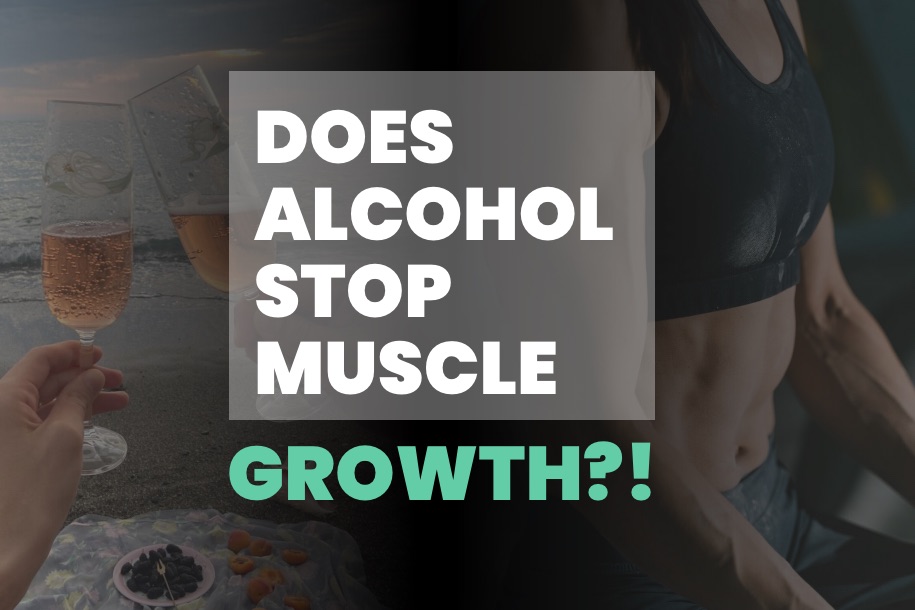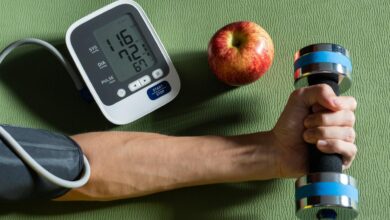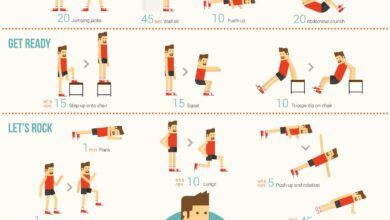
Does Drinking Alcohol Negate Your Workout Gains?
Does drinking alcohol negate your workout gains? This is a question that many fitness enthusiasts grapple with. While enjoying a cold beverage after a grueling workout might seem tempting, the truth is that alcohol can significantly hinder your progress.
This article dives into the science behind alcohol’s impact on muscle recovery, hormone levels, and overall health, shedding light on how it can sabotage your hard-earned gains.
From its effects on muscle protein synthesis and hormone production to its influence on dehydration and sleep quality, alcohol presents a complex challenge for those seeking optimal fitness results. We’ll explore the various ways alcohol can interfere with your body’s ability to repair and rebuild muscle tissue, highlighting the importance of moderation and mindful consumption.
Alcohol’s Impact on Muscle Recovery: Does Drinking Alcohol Negate Your Workout Gains
Alcohol consumption can significantly impact muscle recovery after exercise, potentially hindering your fitness goals. While enjoying a drink after a workout might seem tempting, understanding its effects on your body is crucial.
Alcohol’s Impact on Muscle Protein Synthesis
Alcohol consumption can interfere with muscle protein synthesis, a crucial process for muscle growth and repair. During exercise, muscle fibers break down, and protein synthesis helps rebuild and strengthen them. Alcohol, however, disrupts this process by hindering the production of essential hormones like testosterone, which plays a vital role in muscle growth.
While we all know that alcohol can interfere with muscle recovery and hinder workout gains, it’s important to remember that even small amounts of exercise can make a big difference. Check out this article on how short bursts of exercise can benefit your health to see how even a few minutes of activity can boost your overall well-being.
So, if you’re trying to stay on track with your fitness goals, even with occasional indulgences, remember that any movement is better than none.
Alcohol Delays Muscle Recovery After Exercise
Numerous studies have demonstrated that alcohol consumption can delay muscle recovery after exercise. Alcohol’s impact on muscle recovery stems from several factors:* Dehydration:Alcohol is a diuretic, meaning it increases urine production, leading to dehydration. Dehydration can impair muscle function and delay recovery.
Inflammation Alcohol can increase inflammation in the body, potentially exacerbating muscle soreness and delaying recovery.
Hormonal Imbalance Alcohol disrupts hormone balance, affecting testosterone production and potentially hindering muscle growth and repair.
Reduced Protein Synthesis
It’s a common question: does drinking alcohol negate your workout gains? While moderation is key, focusing on a healthy diet can help offset any potential negative effects. For a nutritious and delicious addition to your meals, check out these 12 farmers market friendly asparagus recipes.
Asparagus is packed with vitamins and minerals, and these recipes are sure to inspire you to get creative in the kitchen. Ultimately, consistency with your workout routine and a balanced diet are the best ways to maximize your fitness progress, regardless of your occasional indulgences.
The Impact of Different Types of Alcohol on Muscle Recovery
While all types of alcohol can negatively impact muscle recovery, some types may have a more pronounced effect than others. * Hard Liquor:Hard liquor, such as whiskey, vodka, and gin, tends to have a higher alcohol content, potentially leading to more significant dehydration and a greater impact on muscle recovery.
Beer Beer, while lower in alcohol content, often contains carbohydrates, which can lead to insulin spikes and hinder muscle recovery.
Wine
So, you’re hitting the gym hard, but enjoying a few drinks after? While a little alcohol won’t completely sabotage your gains, it can definitely hinder your progress. Alcohol can disrupt your sleep, interfere with muscle recovery, and even lead to poor food choices.
If you’re serious about reaching your fitness goals, it’s important to be mindful of your alcohol intake. To learn more about common weight loss challenges and how to overcome them, check out this article on 6 common weight loss challenges solve.
Ultimately, finding a balance between your fitness goals and social life is key to success, and that might mean cutting back on the booze, at least temporarily.
Alcohol’s Role in Dehydration and Energy Expenditure
Alcohol consumption can have a significant impact on your body’s hydration levels and energy expenditure, potentially affecting your workout gains. Understanding these effects is crucial for making informed decisions about alcohol consumption, especially if you’re trying to optimize your fitness goals.
Alcohol’s Impact on Dehydration
Alcohol is a diuretic, meaning it increases urine production. This occurs because alcohol inhibits the release of antidiuretic hormone (ADH), which normally helps the body retain water. As a result, alcohol consumption can lead to dehydration, particularly when combined with inadequate water intake.
Dehydration can negatively affect muscle function by reducing blood volume, hindering nutrient delivery, and impairing muscle recovery.
Alcohol’s Influence on Energy Expenditure, Does drinking alcohol negate your workout gains
Alcohol provides calories, but it’s not a nutrient that your body can use for energy production. Instead, your body prioritizes metabolizing alcohol over other energy sources like carbohydrates, fats, and proteins. This process, known as “alcohol preference,” can lead to increased energy expenditure as your body works to eliminate alcohol.
Caloric Content of Alcoholic Beverages
| Beverage | Serving Size | Calories |
|---|---|---|
| Beer (regular) | 12 oz | 150 |
| Wine (red or white) | 5 oz | 125 |
| Liquor (80 proof) | 1.5 oz | 100 |
| Margarita | 5 oz | 250 |
| Cosmopolitan | 4 oz | 180 |
Alcohol’s Impact on Sleep Quality

While you might initially feel drowsy after consuming alcohol, it actually disrupts your sleep patterns, impacting your recovery from workouts. Alcohol interferes with the natural sleep cycle, potentially hindering muscle repair and overall well-being.
Alcohol’s Disruption of REM Sleep
Alcohol consumption can significantly disrupt REM sleep, the stage of sleep crucial for memory consolidation and muscle repair. During REM sleep, your brain is highly active, processing information from the day and consolidating memories. It also plays a vital role in muscle growth and repair.
When alcohol disrupts REM sleep, it reduces the time spent in this critical phase, potentially hindering muscle recovery and affecting cognitive function.
Studies have shown that alcohol consumption can lead to a decrease in REM sleep duration and an increase in sleep fragmentation, characterized by frequent awakenings during the night.
This fragmented sleep pattern further disrupts the restorative process, making it harder for your body to repair muscle tissue and recover from strenuous exercise.
The Impact of Different Alcoholic Beverages on Sleep
The type of alcoholic beverage you consume can also influence its impact on sleep. Different alcoholic beverages contain varying amounts of congeners, substances that contribute to hangovers and sleep disturbances.
| Alcoholic Beverage | Sleep Disruption |
|---|---|
| Beer | Moderate disruption, often leading to lighter sleep and frequent awakenings. |
| Wine | Can disrupt REM sleep and lead to sleep fragmentation, especially red wines due to higher congener content. |
| Spirits | Significant disruption of sleep, potentially leading to insomnia and difficulty falling asleep. |
Alcohol’s Influence on Overall Health
Beyond its impact on muscle recovery and workout gains, alcohol consumption can significantly influence your overall health. It affects various bodily functions, including your immune system, and can lead to long-term health complications if consumed excessively.
Alcohol’s Impact on Immune Function
Alcohol consumption can suppress your immune system, making you more susceptible to infections. This is because alcohol interferes with the production and function of white blood cells, which are essential for fighting off infections.
- Alcohol disrupts the production of antibodies, proteins that help identify and neutralize pathogens.
- It also hinders the activity of natural killer cells, a type of white blood cell that destroys infected or cancerous cells.
A weakened immune system can lead to a prolonged recovery time from illnesses and increase the risk of developing chronic conditions. In the context of muscle recovery, a compromised immune system may delay the healing process and hinder muscle growth.
Long-Term Health Consequences of Excessive Alcohol Intake
Chronic excessive alcohol consumption can have serious long-term health consequences. These include:
- Liver disease:Alcohol can damage the liver, leading to conditions like fatty liver disease, alcoholic hepatitis, and cirrhosis.
- Heart disease:Excessive alcohol intake can increase the risk of high blood pressure, heart attacks, and strokes.
- Cancer:Alcohol consumption is linked to an increased risk of several types of cancer, including breast, colorectal, and liver cancer.
- Neurological disorders:Excessive alcohol use can damage the brain, leading to cognitive decline, memory problems, and neurological disorders like Wernicke-Korsakoff syndrome.
- Mental health issues:Alcohol can worsen existing mental health conditions like depression and anxiety, and it can also lead to alcohol dependence and addiction.
Health Risks Associated with Different Levels of Alcohol Consumption
The table below illustrates the health risks associated with different levels of alcohol consumption:
| Level of Alcohol Consumption | Health Risks |
|---|---|
| Moderate (up to 1 drink per day for women, 2 drinks per day for men) | Potential benefits for heart health, but risks still exist. |
| Heavy (more than 1 drink per day for women, 2 drinks per day for men) | Increased risk of heart disease, stroke, liver disease, cancer, and other health problems. |
| Binge drinking (4 or more drinks for women, 5 or more drinks for men on a single occasion) | High risk of injury, alcohol poisoning, and death. |
Final Conclusion

Ultimately, the decision to consume alcohol while pursuing fitness goals is a personal one. However, understanding the potential drawbacks of alcohol consumption is crucial. By prioritizing muscle recovery, optimizing hormone balance, and maintaining proper hydration and sleep, you can maximize your workout gains and achieve your fitness aspirations.
Remember, a balanced approach to both exercise and alcohol consumption is key to a healthy and fulfilling lifestyle.





